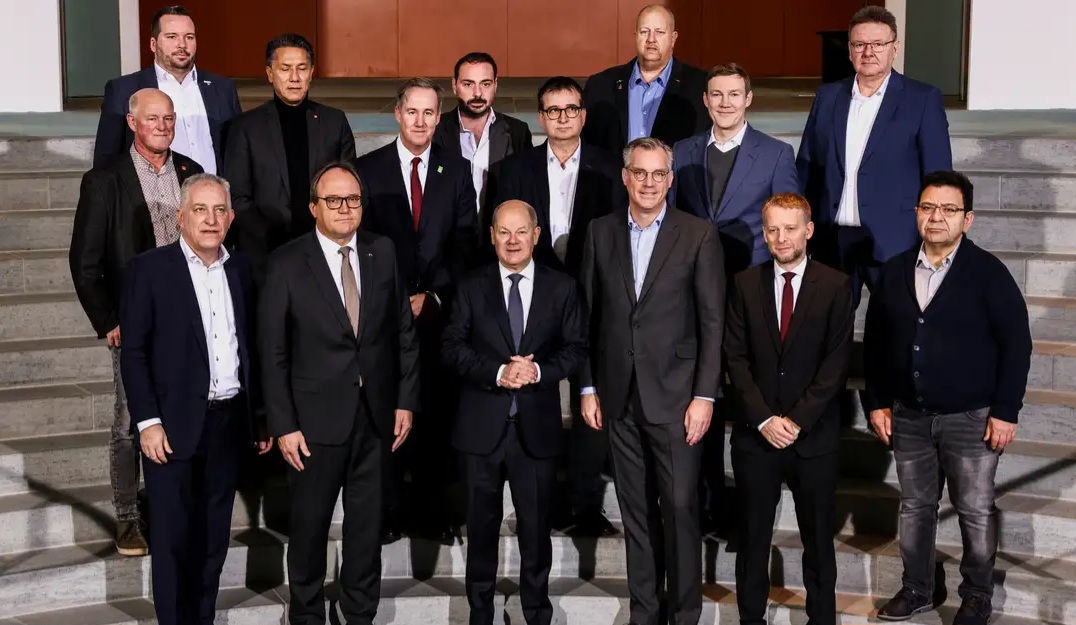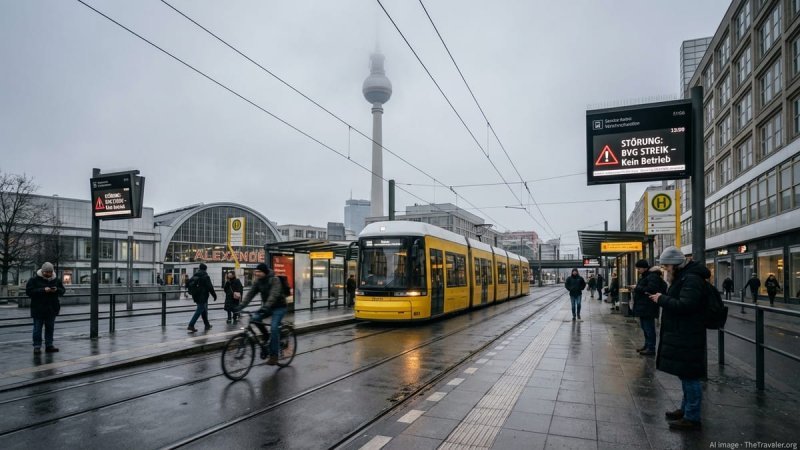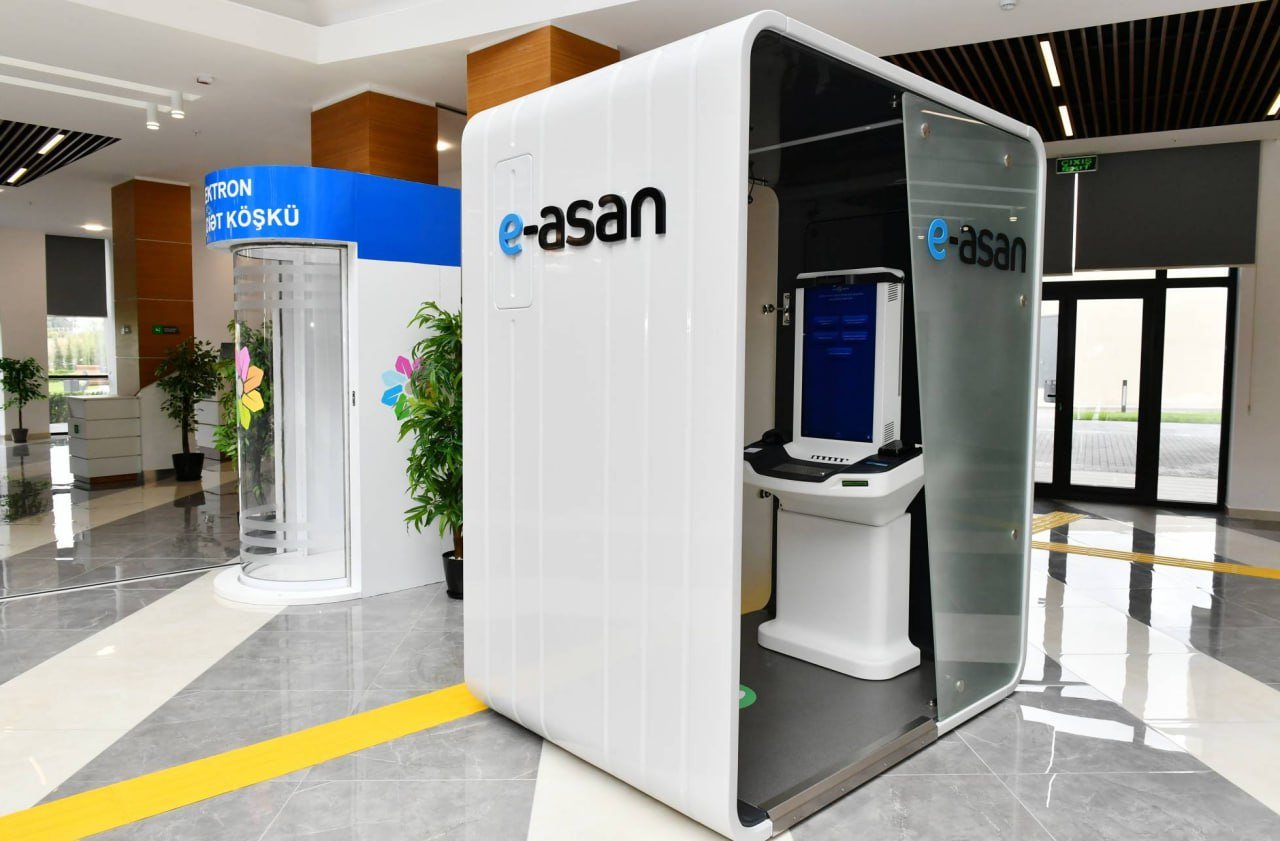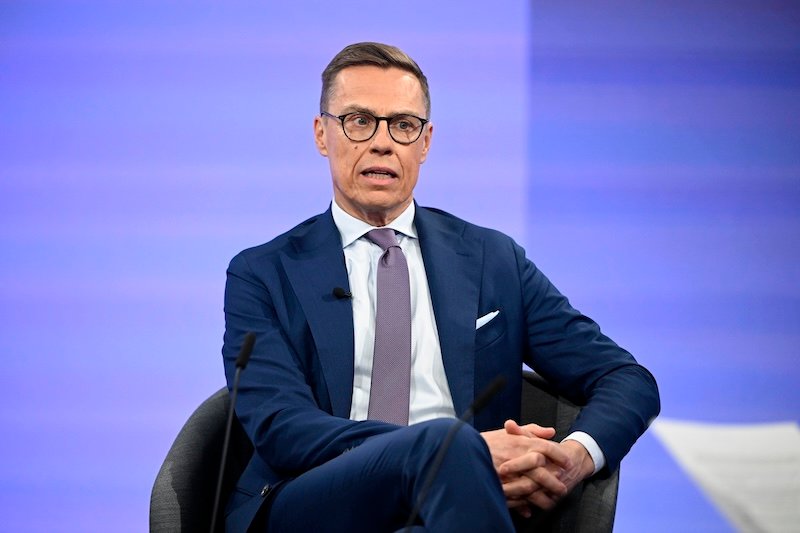Berlin, December 10, 2024 – The Europe Today: German Chancellor Olaf Scholz on Monday reassured labor leaders and steel executives of his government’s commitment to competitive energy costs and fairer international framework conditions for the steel industry. Representatives from major companies, including Thyssenkrupp Steel Europe, Salzgitter, and ArcelorMittal, attended the meeting in Berlin.
The German steel industry, facing years of low-cost competition from Asia and market volatility, has reached a critical juncture. Scholz highlighted plans to cap electricity transmission costs and called for EU-wide measures to protect the sector.
Key Domestic Measures
Scholz proposed capping electricity transmission grid fees at three cents per kilowatt hour, a move designed to ease financial pressure on steel producers. Additionally, the government aims to finance part of the costs for the transmission grids to prevent fee hikes in 2025, signaling continued support for modernizing production in the steel sector.
However, political hurdles remain. Since Scholz dismissed former finance minister Christian Lindner, his government lacks a parliamentary majority, making the passage of these proposals dependent on opposition support.
Call for EU-Level Action
A spokesperson for Scholz, Steffen Hebestreit, stressed the need for decisive EU intervention to address market distortions caused by dumping and subsidies, which have intensified international competition. Scholz urged the European Commission to consider additional trade protection measures to safeguard the steel industry.
Challenges Facing the Steel Sector
Germany, the EU’s largest steel producer, employed approximately 71,000 people in the sector as of September, according to the Federal Statistical Office. Despite its critical role in the economy, the industry faces mounting difficulties.
In November, Thyssenkrupp Steel announced plans to cut 11,000 jobs over the next six years. Last week, Scholz hinted at the possibility of Berlin taking a stake in Thyssenkrupp’s steel business, underscoring the government’s determination to stabilize the sector.
A Crossroads for the Industry
Scholz’s proposals mark a significant step in addressing the energy and market challenges faced by the steel industry. However, achieving meaningful progress will require both domestic political consensus and coordinated efforts at the EU level.
The steel industry summit serves as a reminder of the vital role of steel production in Germany’s economy and the urgency of protecting it from the pressures of global competition.














